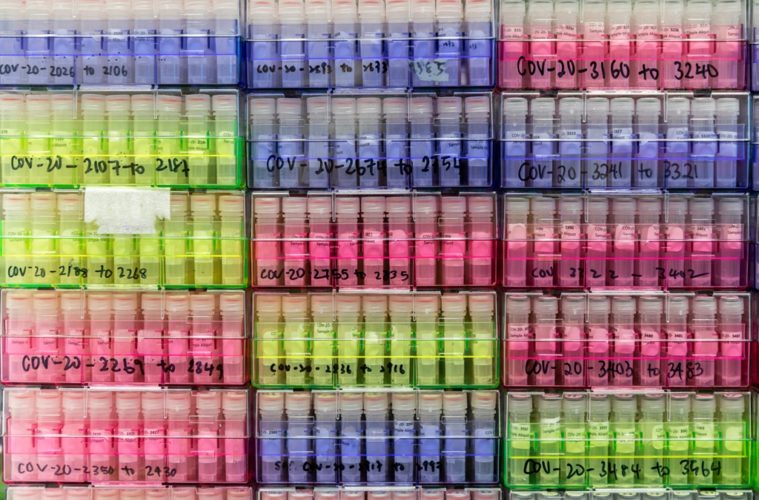The World Health Organization (WHO) is tracking a COVID-19 variant that has shown signs of eluding immunity created by vaccines and or past COVID-19 infections.
The variant is known as Mu, or B.1.621 and has been compared to the Beta variant, as “the Mu variant has a constellation of mutations that indicate potential properties of immune escape,” according to the WHO weekly epidemiological update.
“Preliminary data presented to the Virus Evolution Working Group show a reduction in neutralization capacity of convalescent and vaccine sera similar to that seen for the Beta variant, but this needs to be confirmed by further studies,” the WHO wrote.
The Mu variant was labeled a “variant of interest” or VOI, on August 30, which occurs when it becomes an “emerging risk to public Health.” Other COVID-19 variants of interest include Lambda, Kappa, Iota and Eta.
When a variant increases its rate of transmission, or shows resistance to preventative measures, it may may be labeled a “variant of concern” or VOC. Current VOCs include the Alpha, Beta, Delta and Gamma COVID-19 variants, all of which have been detected in the U.S., with the Delta becoming the dominant strain.
Mu was first discovered in Columbia back in January and a total of 4,500 sequenced cases have been identified in 39 South American and European countries since then. The variant’s sequences have decreased overall, they have ‘consistently’ increased in Columbia (39%) and Ecuador (13%), according to the WHO.
The Mu variant’s prevalence is still considered low, but the WHO will continue to study its characteristics to determine if it may become more deadly or contagious.
Advertising disclosure: We may receive compensation for some of the links in our stories. Thank you for supporting LA Weekly and our advertisers.

